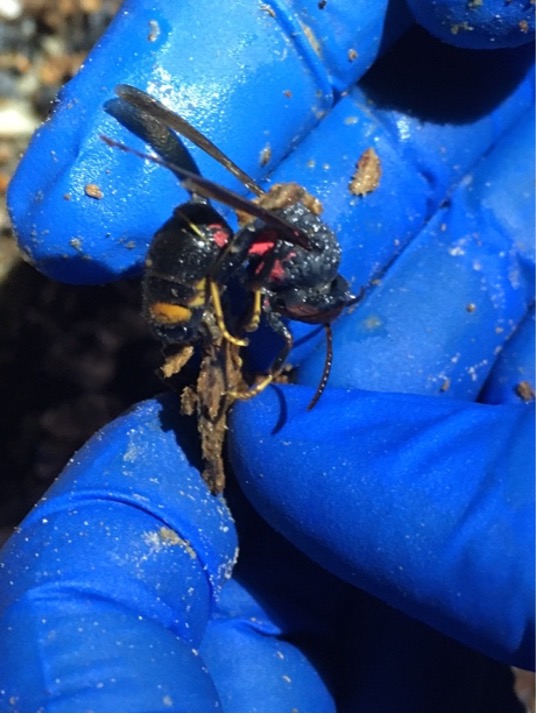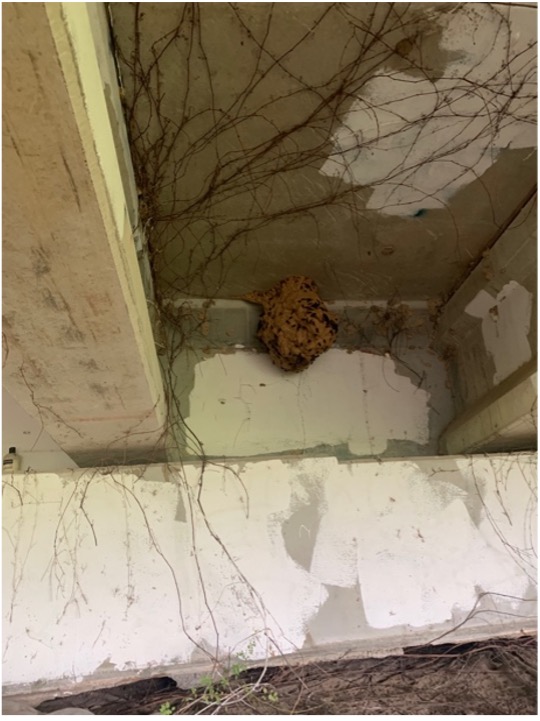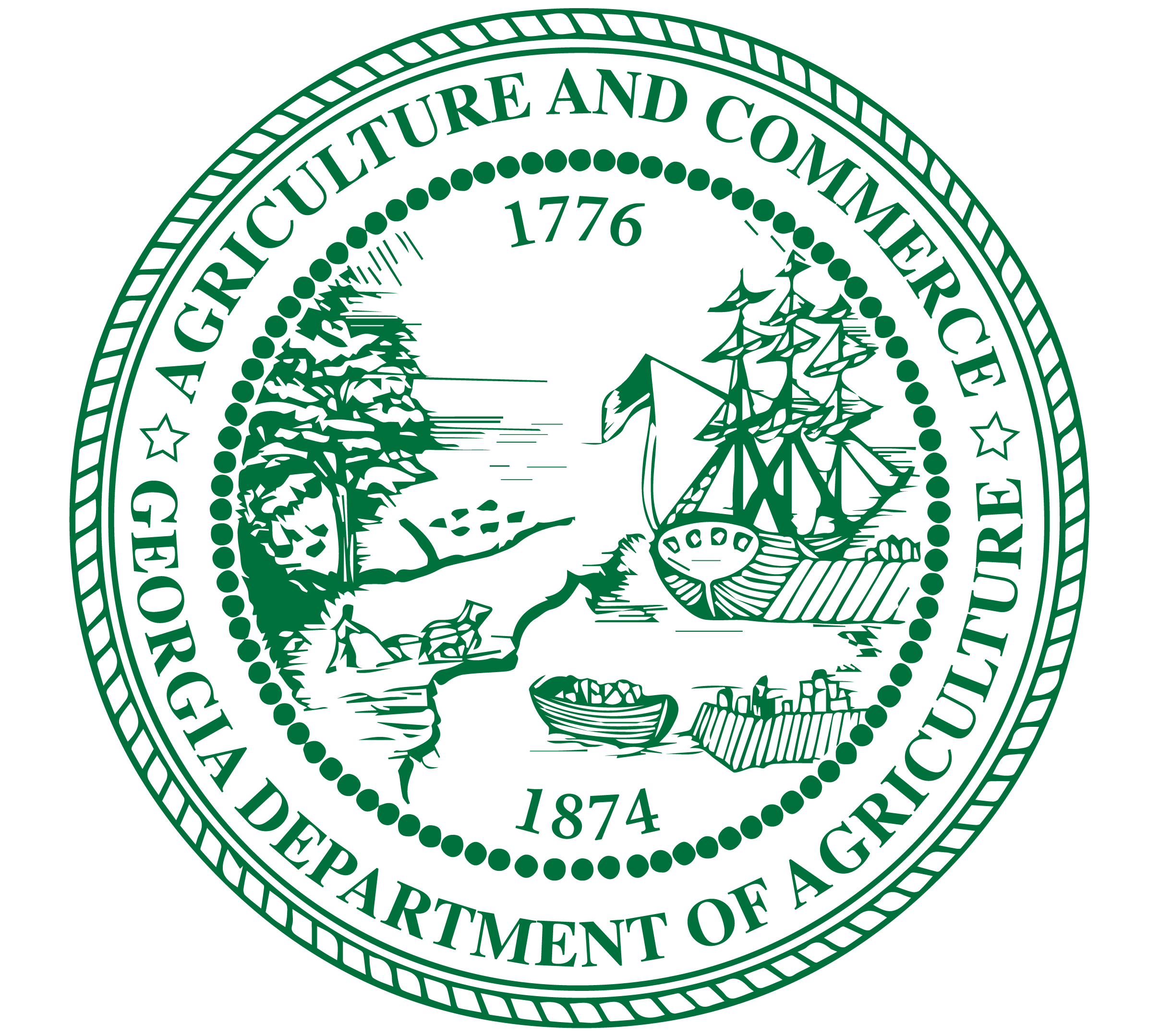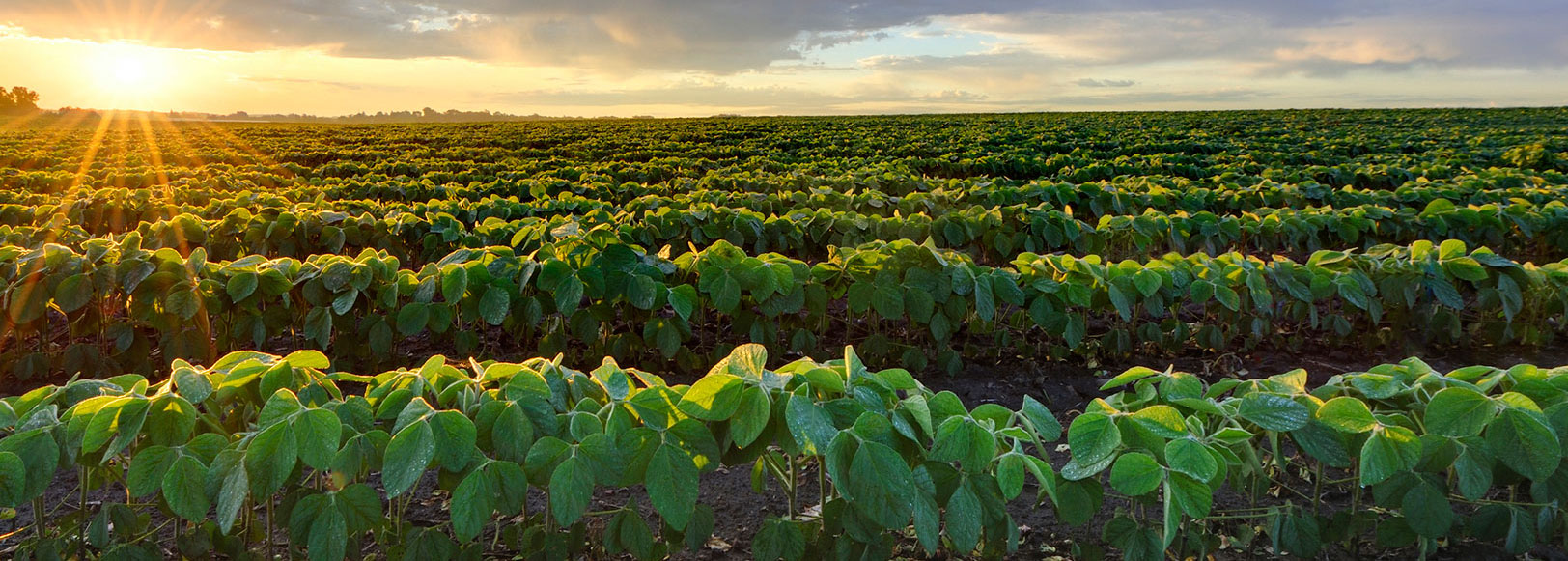Atlanta, GA - Today, Georgia Agriculture Commissioner Tyler Harper announced, in coordination with the U.S. Department of Agriculture (USDA) and the University of Georgia (UGA), the discovery and destruction of a second yellow-legged hornet’s nest on Wilmington Island near Savannah, GA. The first live detection of a yellow-legged hornet (YLH: Vespa velutina) in the open United States was confirmed in Georgia on August 9, 2023. Shortly after, on August 23, 2023, a yellow-legged hornet’s nest was located and destroyed by Department staff and pest management professionals in a residential neighborhood on Wilmington Island. The yellow-legged hornet is a non-native species that, if allowed to establish in the United States, could threaten honey production, native pollinators, and Georgia’s #1 industry - agriculture.
“Since the initial detection of the yellow-legged hornet in Georgia, the Department’s team of dedicated professionals have been working overtime to find any additional yellow-legged hornets in our state, and thanks to their tireless work, we have eradicated a second yellow-legged hornet’s nest,” said Agriculture Commissioner Tyler Harper. “While this eradication is a win for our state and our agriculture industry, we’ll continue working around the clock to find any additional hornets, eradicate this invasive pest, and protect our state’s agriculture industry. The public has played a vital role in this effort, and we’re asking Georgians to continue reporting any suspected sightings directly to the Department.”
The second nest was discovered by Department staff under a bridge on Wilmington Island, GA, on September 15, 2023, and it was eradicated that evening by the same crew of pest management professionals who assisted with the eradication of the first nest. This nest was located using a variety of techniques, including capturing, marking, and releasing hornets to estimate the distance from the trapping location to the nest. Additionally, hornets were captured, taken to different locations, and released so their flight direction could be observed. As this process was repeated, the size of the search area was gradually reduced until the nest was located.


After eradication, the nest was examined by Dr. Lewis Bartlett from the University of Georgia and Dr. Jamie Ellis from the University of Florida. They identified developing hornets within the nest and confirmed there was no evidence of the production of reproductive males or queens within the colony at the time of destruction. Additionally, scientists from UGA have sequenced the genetics of hornets from the first nest and evidence suggests these hornets originated in Asia. DNA samples were taken from the second nest, and genetic analysis of these samples is ongoing.
“The University of Georgia remains committed, alongside our colleagues at the Georgia Department of Agriculture, to the task of eradicating the yellow legged hornet from Georgia and the rest of the country,” said University of Georgia Professor of Entomology and Honey Bee Program Director Dr. Keith Delaplane. “While it does not pose a serious risk to humans, pets and livestock, this hornet has proven itself a deadly predator of honey bees and other pollinators in Europe and Asia. An ideal scenario would be the discovery and eradication of every established nest before the colonies have time to issue new queens who overwinter and start the life cycle over again next spring.”
The Department has two teams of four deployed in the Savannah area that are actively trapping and surveying for additional nests, and these teams have placed 134 traps in the area around the initial detection. So far, confirmed detections of the yellow-legged hornet have been made in twelve separate locations around Wilmington Island, Whitemarsh Island, and Thunderbolt, GA. Nine of these detections were reported to the Department by citizens and three were captured in traps set by Department staff. The Department continues to explore options to more efficiently and effectively trap and track the yellow-legged hornet and recently received electronic monitoring equipment from the Washington Department of Agriculture, which will be put into use in the coming days.

The Department’s team of dedicated professionals continues to work with our partners at UGA and USDA to eradicate any additional hornets in our state, educate the public on the yellow-legged hornet, and conduct outreach to key stakeholder groups such as beekeepers and pest management professionals. Since the initial detection, USDA has provided the Department with additional operating funds to continue our efforts, and the yellow-legged hornet partnership has expanded to include Clemson University and the University of Florida.
As we continue our efforts to eradicated the yellow-legged hornet from our state, we are again asking the public to report any suspected sightings to the Department via this readily accessible form. Beekeepers have been key in reporting yellow-legged hornets, and we encourage them to continue monitoring their hives and contact us with any suspicious activity. Georgians with additional questions or concerns are encouraged to email us at yellow.legged.hornet@agr.georgia.gov.
###


